
Conference
As the last Workshop Student Seminar in the DigitalFUTURES YOUNG program
was organized successfully on the night of July 2nd 2018, the
DigitalFUTURES YOUNG program has come to an end during the workshop.
There are three seminars in the program, in which more than 200
supervisors and students in total participated. 17 outstanding students
gave lectures on their research and had a discussion with the audience
in the field of computational design and digital fabrication.
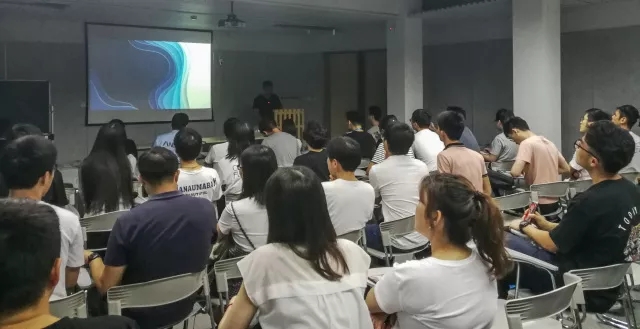
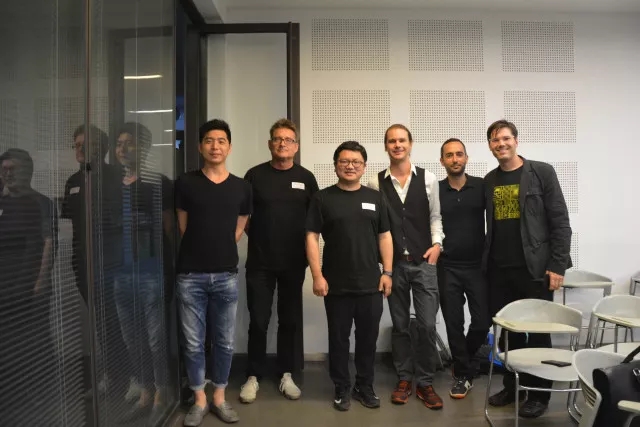
从计算机辅助到计算机决策 From Computer-Aided to Computer-Decided
郑豪Hao Zheng
Hao Zheng is currently a Ph.D student at the University of Pennsylvania, School of Design. He is a programmer and design researcher, specializing in machine learning, robotic technology, mixed reality, and generative design. Hao Zheng believes that although plenty of digital construction and AR-aided design seem to rely heavily on computer assistance, the work are actually completed manually. The computer decision-making model he originally developed is still the mainstream image-image model, and the problem with this model is the limitation of the pixel points. After that, he optimized the model. He tried to understand the building plan from a new perspective, so that the new model was input as a vector rather than an image, and the speed of computer calculation and learning increased a lot. Hao Zheng believes that it is artificial intelligence-robot cooperation to construct buildings from design to fabrication that will become the future trend. When we face the shock of digital future, it is a key issue for architects to find their orientation.

人机工程学参数化设计Ergonomics Parametric Design
曾绍庭Shaoting Zeng
Shaoting Zeng is Ph.D of Design, Department of Industrial Design, Academy of Art and Design, Tsinghua University. His research direction is about morphology digital form design. Shaoting Zeng cuts in the topic from the understanding of parametric. He believes that the two most important points of parametric are relationship and parameters, and his idea of parameter acquisition is closely related to ergonomics. He believes that the key to combining ergonomics with parametric is to generate the word. He then introduced us to his two projects, generating seats and glasses. The participants showed great interest in Zeng Shaoting's plug-ins and algorithms used in completing these two practical projects. He also put forward various suggestions for the design of the seats and glasses and discussed with Shaoting Zeng , such as how to customize the chair. Whether it can be dynamically adjusted, where the parameters of the glasses come from, whether sensors and 3D scans can be used to obtain human body data. Spark of thought has been born from the heated discussion.
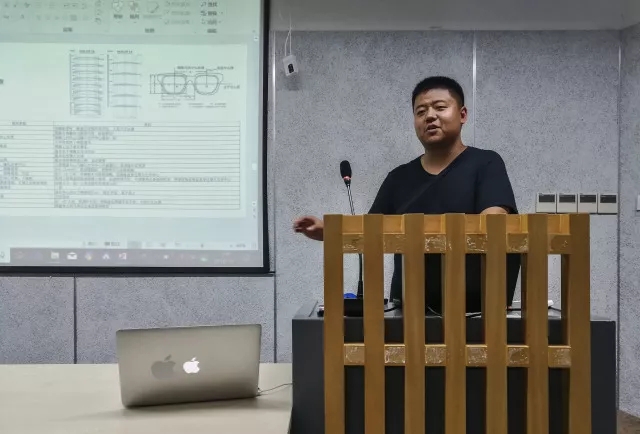
遗传算法在找形和多目标性能优化的应用
Applications of Genetic Algorithms in Form Finding and Multi-Objective Optimization
钱秦阳
Qinyang Qian
Qinyang Qian, a designer who likes to start the design from data rationality, UCL Bartlett, Architecture (Building Environment), good at sustainable architecture design, genetic algorithms, wind, daylight, thermal and comfort analysis in built environment, BIM application and collaboration. Qinyang Qian uses his own project to explain the application of genetic algorithms. The program uses thermal comfort analysis as a starting point, quantifies it into multiple indicators, builds a gene pool (geometry), and the phenotype (outer window) changes accordingly. Genebank-Parametric Modeling-Performance Analysis-Genetic Algorithm Optimization This process has more than 2,000 solutions for different focuses. He chose a more balanced approach to thermal comfort as the final choice. Subsequently, Qian Qinyang summarized this plan and proposed a direction that can be optimized. Bionic vs organic? “Humans abstract a good design concept from nature in the face of challenges. It is a solution to seek sustainable development by imitating the time-tested patterns and strategies of nature”.
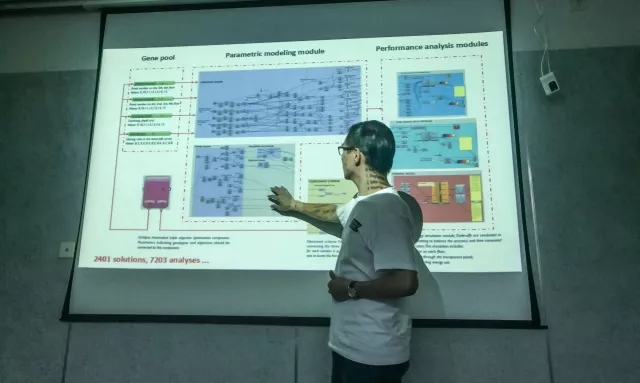
基于大气污染控制的城市街区与建筑高度及布局的优化策略研究
The Optimization of the Height and the Arrangement of Buildings in An Urban Block with An Approach of Controlling Air Pollution
Zeynab Kaseb
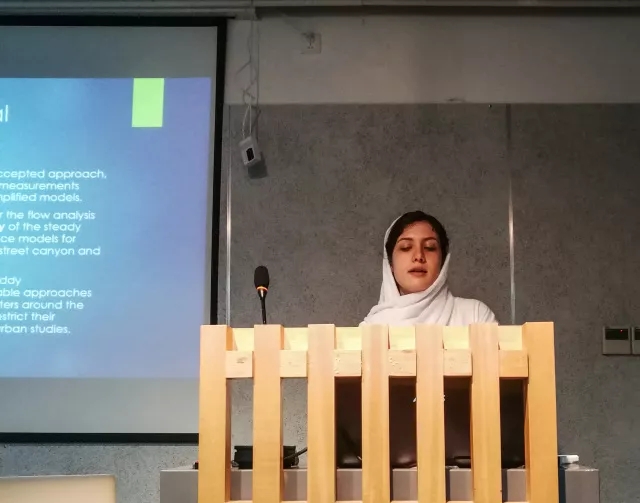
DigitalFUTURES YOUNG Workshop Students Seminar was hosted by Prof. Jiawei Yao, in which students gave excellent speeches about their research and practice. The seminars enjoy a good reputation and students flocked to it. All the participants had a lively discussion, which is far more than the DigitalFUTURES YOUNG Workshop Students Seminar Organizer’s expectation. And until now, DigitalFUTURES YOUNG Workshop Students Seminar has ended up and welcome everyone to focus on other activities in DigitalFUTURES 2018.
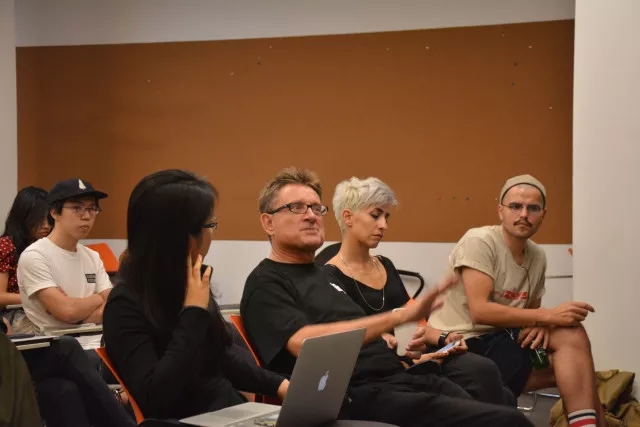

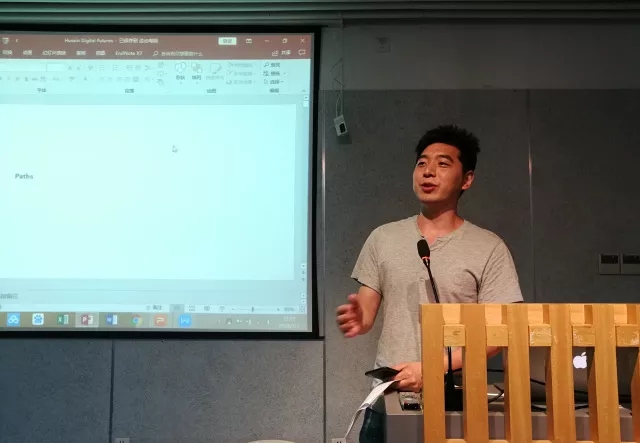

 ABOUT US
ABOUT US




